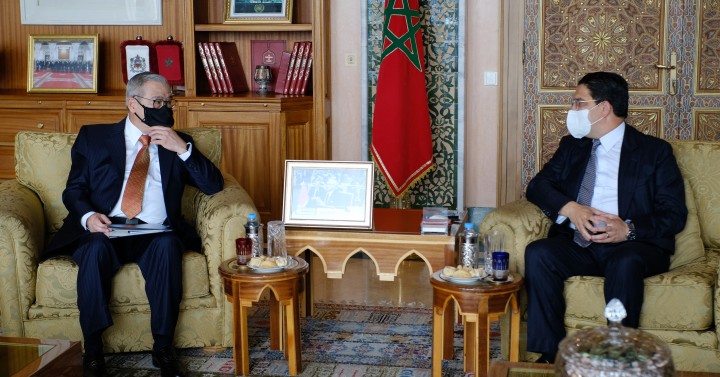News
PH, Morocco revitalize ties; ink air services deal, 2 others

RABAT, Morocco – The Philippines and Moroccan governments have signed an air services agreement, which would pave the way for a direct flight from the North African state to the country and vice versa.
“We signed this to enhance connectivity, boost tourism, and help our national carriers. It’s actually in their (airlines) interest that they activate and then they pursue the provisions under this air services agreement,” Philippine Ambassador to Morocco Leslie Baja told the Philippine News Agency (PNA).
Foreign Affairs Secretary Teodoro Locsin Jr. signed on behalf of the Philippines while his Moroccan counterpart Foreign Minister Nasser Bourita signed for the Kingdom of Morocco.
The two top diplomats also signed a memorandum of understanding (MOU) on political consultations and another MOU between the Foreign Service Institute and the Moroccan Academy for Diplomatic Studies.
The three agreements are on top of the news exchange deal forged between the PNA and Maghreb Arabe Presse also on March 16.
READ: PNA inks news cooperation deal with Moroccan counterpart
The signing capped the bilateral meeting between Locsin and Bourita at the Moroccan Ministry of Foreign Affairs (MFA) in Rabat, where the two officials discussed ways to advance the two countries’ common interests, including migration, climate change, counter-terrorism, peacekeeping, and maritime cooperation.
“I express our appreciation for the warm welcome and gracious hospitality accorded us by the Kingdom of Morocco. In turn, we look forward to welcoming His Excellency Minister Bourita to the Philippines at a convenient time,” Locsin said during a press conference at the MFA.
“In this visit, we reaffirmed both sides’ keen interest to enhance opportunities for cooperation between our countries and our peoples,” he said.
On the Sahara issue, Locsin said Manila is steadfast in upholding the principles enshrined in the United Nations Charter that all states enjoy the right to full sovereignty in all their areas of jurisdiction.
“The UN Charter requires sovereign states to refrain from the use of force against the political independence and territorial integrity of any state. We are witnessing its violation elsewhere,” he said.
“We especially condemn — indeed I said at the UN, we abhor the use of separatism and secession as a weapon of diplomacy; they are the cruelest conflicts where neighbors turn on neighbors and know how to hurt each other most deeply,” he added.
Bourita welcomed Manila’s position supporting their territorial integrity, noting that Morocco likewise perceives, in the same way, the issues of territorial integrity and national sovereignty of all countries, including that of the Philippines.
The parties agreed to coordinate positions in regional and international organizations to counter rapprochement between separatism and terrorism, as well as to confront attempts of countries whose “core business” is to undermine stability by encouraging and harboring terrorists and separatist groups.
“Morocco and the Philippines will coordinate to defend their territorial integrity and fight separatist and extremist groups wherever they are,” Bourita said.
He said Locsin’s trip was the first time that a Filipino top diplomat visited Morocco since the Philippine Embassy was closed down in the 1990s, describing it as a “game-changer” in the two nations’ diplomatic relations.
He said this also comes within the framework of King Mohammed VI’s vision to diversify Morocco’s partnerships.
Bourita said mechanisms of cooperation and political consultation would be activated regularly throughout the year to coordinate Manila and Rabat’s positions on several regional and international issues.
He raised the need to develop economic relations with the Philippines, especially with the opportunities that the two countries can open for each other in their respective regions.
As a “major element” in Southeast Asia, Bourita said the Philippines stands as a strong partner of Morocco in the region.
He said Manila can also serve as a gateway for Morocco as it advances its ties with the Association of Southeast Asian Nations (Asean), just as Rabat can serve as a gateway for the Philippines’ sustained economic presence in Africa.
In an interview, Baja said Locsin’s Morocco visit is historic in the sense that it was held following the resumption of Embassy operations in Rabat and the opening of the Moroccan Embassy in Manila.
“The opening and reopening spurred the bilateral relations, we are able to have meetings and of course, we have all these agreements that have been signed,” he said. (PNA/MAP)





















